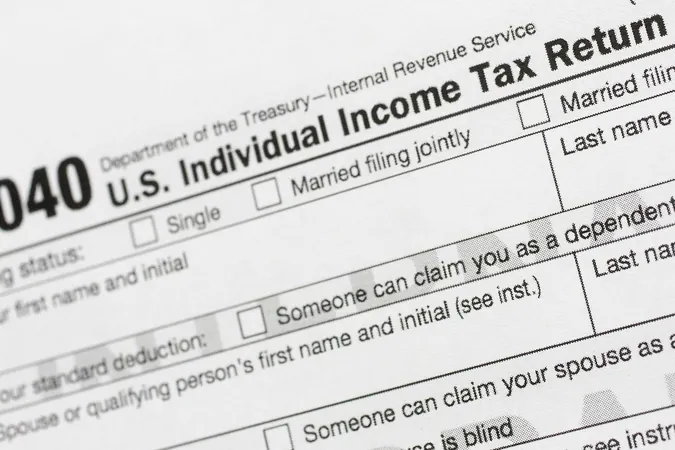
Snowbirds, Beware! Hidden Tax Traps Await You After Your Return!
2025-05-08
Author: Jacob
As the winter sun sets in Arizona, countless Canadian snowbirds have returned home, laden with stories and memories from their southern adventures — but are they prepared for the tax implications awaiting them?
The Unseen Tax Trap: What Every Snowbird Needs to Know
Many are blissfully unaware that their time spent basking in the sun might make them liable for U.S. taxes on their global income. Yes, you read that right! If you're one of those cherished snowbirds, you need to get acquainted with the substantial presence test (SPT) to avoid financial headaches.
Understanding the Substantial Presence Test (SPT)
This crucial test considers the number of days you’ve spent in the U.S. over three years: your days in the current year, one-third of the days from the previous year, and one-sixth from the year prior. If that total hits 183 days, congratulations — you might be deemed a U.S. tax resident!
However, if you spent fewer than 31 days in the U.S. this year, you’re in the clear, avoiding SPT altogether. But heads up! If you're averaging around 122 days annually in the U.S., you could easily cross the threshold and find yourself entangled in the U.S. tax system.
Navigating the Form 8840: Your Lifeline
If the SPT has you worried, don’t panic just yet! You may still hold onto your Canadian tax status by filing Form 8840, known as the Closer Connection Exception Statement. This form essentially tells the IRS: 'Hey, I love Canada too much to be taxed here!'
But, to qualify, you must not have crossed the 183-day threshold in the current year. Should you find yourself over that limit, you will need to dive into the intricacies of the Canada-U.S. tax treaty, which can get quite convoluted.
Deadlines & Consequences: Don’t Be Late!
Mark your calendars! Form 8840 is due June 15 for the previous calendar year’s earnings — but if you hit that SPT in 2024, your deadline shifts to June 16 since the 15th falls on a Sunday.
If you earned income while in the U.S. — think rental income or wages — you may also need to file a non-resident tax return using Form 1040-NR. Late submissions could result in hefty penalties and, heaven forbid, U.S. tax obligations on your worldwide income!
Navigational Nuances: The Fine Print
Beware! If you clocked in more than 183 days or you’re a green card holder, the Form 8840 is off the table for you. And remember, every partial day counts as a full day. Exceptions exist, but they’re rare and mostly pertain to medical emergencies or specific roles.
In the dazzling world of snowbirds and sunshine, don’t forget that U.S. tax laws can follow you back home. Stay informed, stay prepared, and keep your hard-earned money where it belongs— in your pocket!









 Brasil (PT)
Brasil (PT)
 Canada (EN)
Canada (EN)
 Chile (ES)
Chile (ES)
 Česko (CS)
Česko (CS)
 대한민국 (KO)
대한민국 (KO)
 España (ES)
España (ES)
 France (FR)
France (FR)
 Hong Kong (EN)
Hong Kong (EN)
 Italia (IT)
Italia (IT)
 日本 (JA)
日本 (JA)
 Magyarország (HU)
Magyarország (HU)
 Norge (NO)
Norge (NO)
 Polska (PL)
Polska (PL)
 Schweiz (DE)
Schweiz (DE)
 Singapore (EN)
Singapore (EN)
 Sverige (SV)
Sverige (SV)
 Suomi (FI)
Suomi (FI)
 Türkiye (TR)
Türkiye (TR)
 الإمارات العربية المتحدة (AR)
الإمارات العربية المتحدة (AR)